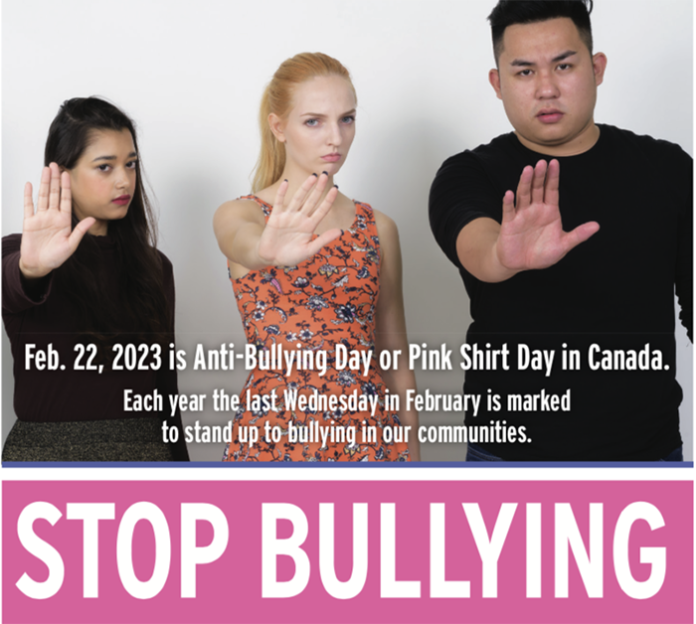By LAURA DAFOE
Special to the Driftwood
Pink Shirt Day draws our attention to the uncomfortable reality of bullying. Each year we notice increasing participation in this event as more and more of us don pink shirts to speak up against bullying, and even more strongly, to speak up for a gentler world where diversity is celebrated and people treat one another with respect.
This day prompts us to explore current practices that are successful in reducing bullying and to consider what more we can do. Nonviolent Communication and Restorative Justice are two of many global movements that are proving effective.
The practice of Nonviolent Communication teaches us to view one another through a lens of understanding and compassion. We learn to appreciate that human beings share basic needs, values and common ambitions. We come to understand that the person bullying, and the person who is vulnerable to bullying, each want the same things in life, such as to belong, to be heard, to feel safe and to matter. Seeing our common humanity is what shifts us towards empathy for one another. Nonviolent Communication provides a concrete set of language skills to help us express what are often difficult and bewildering emotions. These skills make it possible to voice our viewpoints in ways that others will listen to and respond to constructively.
Restorative Justice is an approach that seeks to repair relationships when harm is done. The process encourages those who cause harm to take responsibility for their actions. They come to understand what motivated the harmful act, learn from their mistake, and discover how to make better choices. Restorative Justice is rooted in Indigenous practices where dialogues often take place in a circle format. Great care is taken to ensure all those involved feel safe, supported and, most importantly, everyone has a voice equal to others. This structure serves to diffuse the power differential which often enables bullying; whether it be in schools, in the workplace or in relationships between individuals.
Educators around the world are integrating the principles and practices of Nonviolent Communication and Restorative Justice into the school culture. Emotional intelligence and appropriate behaviour are viewed as life skills which are taught, developed and nurtured. Students and staff alike gain competence in discussing differences and resolving conflict peacefully. With these approaches we recognize our interconnection and see the wisdom of treating one other with kindness and respect.
For more information visit:
• Restorative Justice SSI at www.rjssi.org.
• The Center for Nonviolent Communication at
www.cnvc.org.
Or contact Laura at lauradafoe@gmail.com.
Laura Dafoe is a retired teacher living on Salt Spring and an advocate of peaceful communication practices.

